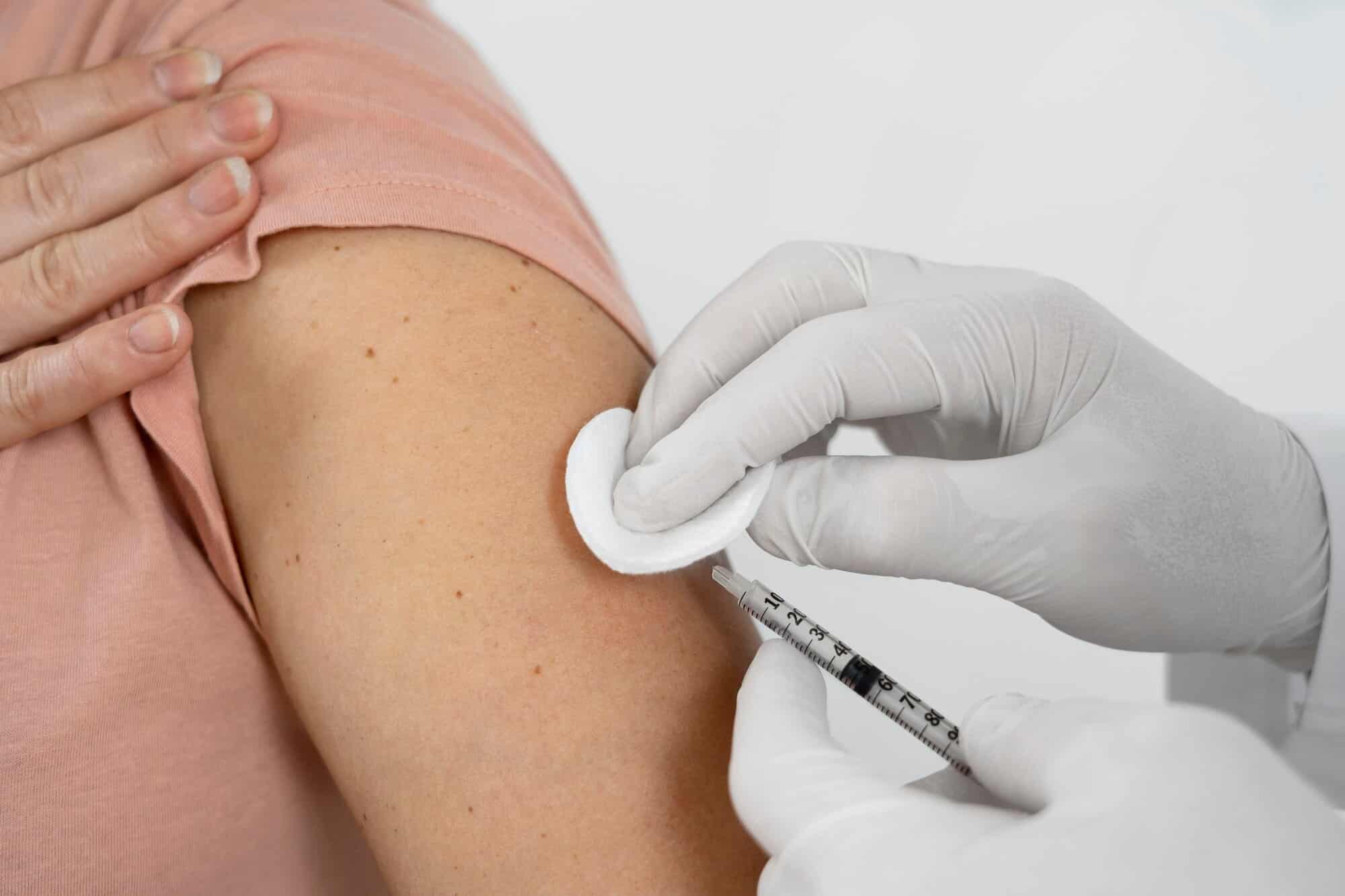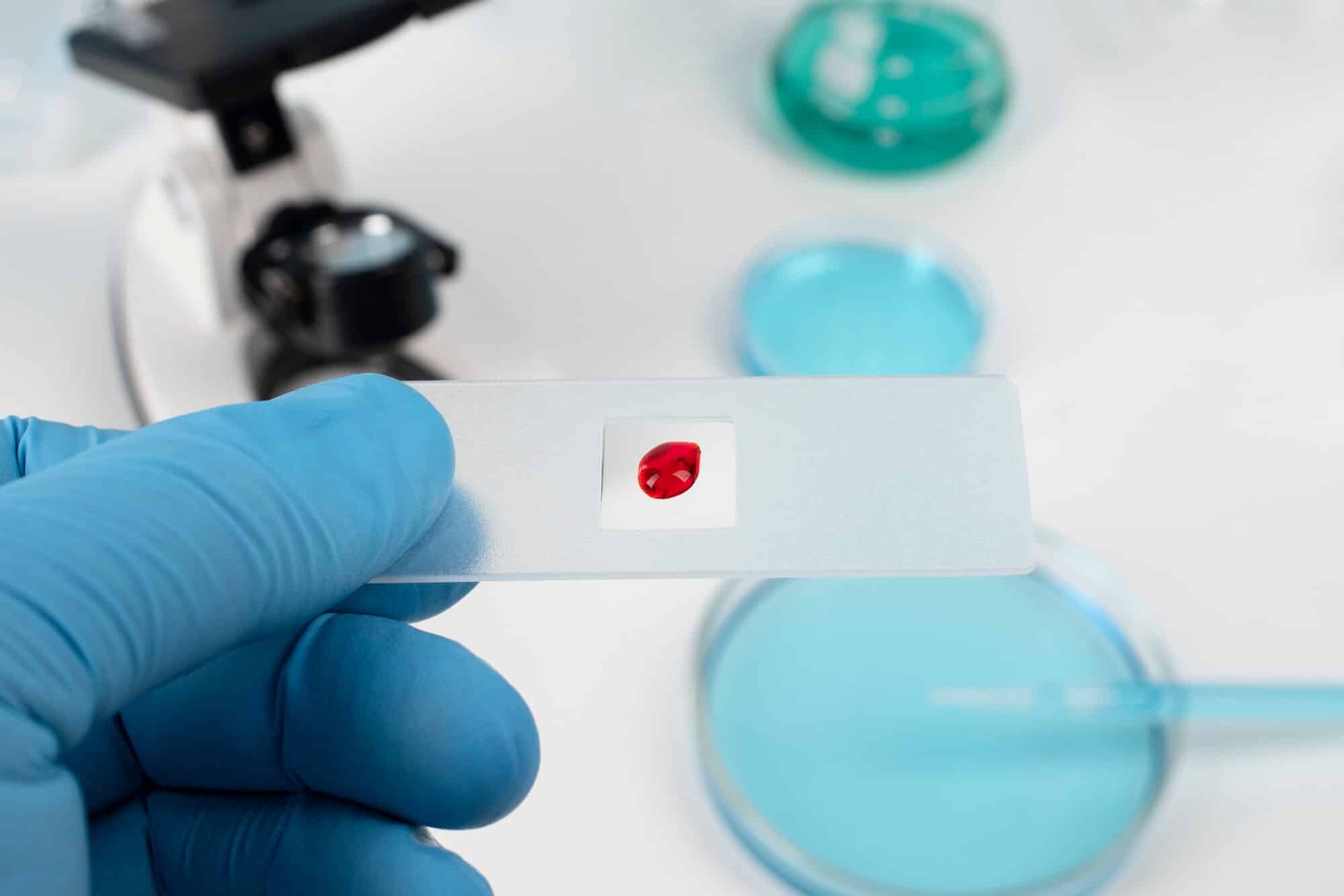
All pregnant mothers should test for hepatitis C during pregnancy. Around 6 in every 100 babies born to HCV-positive mothers contract the disease, which is why testing is so important. Since the virus passes through blood-to-blood contact, a mother can pass it to her baby in the womb or during childbirth. Testing for hepatitis C can enable you to be better prepared to treat your child if you test positive and transmit the disease to your baby. Read on to learn more about hepatitis C in pregnancy, including its symptoms, the risks it poses, and treatment methods.
What is Hepatitis C and How Does it Spread?
Hepatitis C is a viral infection that causes liver swelling and can lead to liver damage. It spreads through blood-to-blood contact, which can happen in a number of situations, including:
- Sharing or reusing needles, syringes, or other injection equipment
- Getting a tattoo or a piercing with a used needle
- Sharing razors, toothbrushes, towels, or nail clippers with an infected person
- Having sexual intercourse with an infected person
- Getting pricked accidentally by a used needle
While HCV can be transmitted from mother to child in utero or during childbirth, the virus cannot be spread through breast milk, sharing food and drinks, or hugging and casual contact.
Symptoms of Hepatitis C in Pregnant Women
A long-term hepatitis C infection starts with an acute phase. The acute phase rarely causes noticeable symptoms. In fact, HCV often presents no symptoms for many years and only makes itself known after the virus has damaged the liver enough to cause symptoms, which can include:
- Fatigue
- Nausea and vomiting
- Loss of appetite
- Jaundice (yellowing of the skin)
- Dark-colored urine
- Pale or clay-colored stools
- Right upper abdominal pain
- Itchy skin
- Confusion, drowsiness, and slurred speech
- Swelling in the legs or abdomen
- Easy bruising or bleeding
- Memory issues
Overlapping Pregnancy Symptoms
Some common symptoms of hepatitis C mimic normal pregnancy symptoms, including:
- Fatigue
- Nausea and vomiting
- Appetite changes
Hepatitis C testing is the best way to find out if you have hepatitis C while pregnant. The CDC (Centers for Disease Control and Prevention) recommends a hepatitis C antibody test as part of your prenatal checkups to manage risks for both you and your child. All adults aged 18 and up are strongly advised to test for HCV at least once in their lifetime. That’s because hepatitis C usually has no symptoms, so you may still be infected even if you feel healthy.
How Does Hepatitis C Affect Pregnancy?
Research has found that hepatitis C in pregnancy can increase the chances of adverse outcomes for the fetus, such as low birth weight and fetal growth restriction. The virus can impact pregnancy in various ways, and its effects depend on the stage of infection and the physical condition of the mother.
Risks of HCV for the Mother
- Liver Disease: Hepatitis C targets the liver. This organ filters toxins, breaks down nutrients, and produces substances necessary for blood clotting. HCV can cause inflammation and damage to the liver cells, and if left untreated, can lead to scarring of the liver, liver cancer, and even liver failure.
- Gestational Diabetes: HCV has been shown to increase the risk of developing gestational diabetes, which is a condition in which a woman’s blood sugar levels increase during pregnancy due to an inability to produce enough insulin. High blood sugar levels during pregnancy can increase the risk of developing preeclampsia and of the baby growing too large for natural delivery.
Risks of HCV for the Baby
- Preterm Birth and Low Birth Weight: Some studies have associated HCV in pregnant women with an increased likelihood of premature delivery. Lower birth weights are also common in infants born to HCV-positive mothers.
Hepatitis C Treatment for Mothers
Treatment usually lasts between 8 and 12 weeks. Doctors will not treat hepatitis C while you are pregnant. This is because the antiviral medication usually prescribed for HCV can harm the fetus and potentially cause birth defects. If you test positive for HCV during a prenatal checkup, you will most likely begin treatment once you are done breastfeeding or after giving birth if you aren’t planning to breastfeed. Here is what to expect before, during, and after hepatitis C treatment:
Testing
In order to diagnose hepatitis C, you will undergo an antibody test to check for the presence of HCV antibodies and an RNA test to measure the viral load in your system. You may also undergo testing for liver fibrosis and liver function. During treatment, your condition will continue to be monitored, and 12 weeks after treatment, you will be retested for viral load to see how you have responded to antiviral medication. If your test results show an SVR (sustained virologic response), it means the virus is no longer in your bloodstream and is very unlikely to return.
Medication
Generally, DAAs (direct-acting antivirals) are prescribed to hepatitis C patients, as they are highly effective, with a 95% cure rate. Different types (genotypes) of HCV may be treated with different medications. Some commonly prescribed DAAs include:
- Sofosbuvir/Velpatasvir (Epclusa®): Treats all genotypes and is suitable for patients with or without cirrhosis
- Glecaprevir/Pibrentasvir (Mavyret): A shorter course (8 weeks)
- Sofosbuvir/Ledipasvir (Harvoni®): Effective for genotypes 1, 4, 5, and 6 – usually takes 12 weeks
When taking these medications, you may experience headaches and tiredness. Complications are rare, but they may occur as a result of interactions with other medications. Always read the product label and consult your doctor before starting a course of DAAs.
Ongoing Care
Hepatitis C patients with cirrhosis should not drink alcohol, and HCV patients without cirrhosis should still be very careful with their alcohol intake. In addition, maintaining a healthy diet and regular physical activity can contribute to better liver function. You may also have to go for follow-up treatment depending on the severity of the damage to your liver. Even if you are cured, it is possible to contract HCV a second time, which is why follow-up testing is so important.
Hepatitis C Treatment for Children
In 40% of cases, children who have contracted HCV from their mothers clear the virus on their own by the age of 2. For those who do not, treatment begins after the age of 3 and typically lasts for 12 weeks. Here is what to expect before, during, and after treatment of your child’s HCV:
Testing
Infants born to HCV-positive mothers need to undergo RNA testing once they reach 18 months of age to check for infection. If they are HCV-positive, they will need to undergo testing to determine their hepatitis C genotype, which determines the medication required for treatment. They will also need to be tested for liver damage. During treatment, they will be tested for viral load to gauge their response to antiviral medication, and 12 weeks after treatment, they will be tested to confirm they are cured.
Medication
DAAs are approved for children aged 3 years and older. These medications are safe, well-tolerated, and highly effective. At the moment, antiviral medication containing sofosbuvir with or without ribavirin or a combination of ledipasvir and sofosbuvir has been approved for the treatment of HCV in children. Side effects are generally very mild and can include headaches and tiredness.
Ongoing Care
Even after being cured, it is important that your child goes for regular follow-ups to monitor their liver health. Children with severe liver disease should be tested for liver cancer periodically. In addition, ensuring that your child consumes a healthy diet and leads an active life can contribute to overall health and support liver function. If your child tests positive for hepatitis C, you can find peace in the knowledge that the vast majority of children recover without any change to their quality of life.
Get Tested for Hepatitis C During Pregnancy
Equality Health provides hepatitis C testing for expectant mothers and comprehensive post-partum treatment. We offer personalized monitoring of your condition to ensure you and your child’s health. Our professionals will guide you through every step of your testing and treatment journey. Take the first step toward a healthier tomorrow for you and your child by scheduling an appointment today.
Frequently Asked Questions (FAQs)
Yes. HCV is not transmitted during breastfeeding unless there are wounds or cuts around the nipple area. This is because the virus is transmitted through blood contact. If you notice bleeding or wounds around the nipple, you should stop breastfeeding immediately.
The majority of hepatitis C cases result from injecting drugs with used needles. Sharing needles can put you at risk of contracting a number of other diseases transmitted through blood contact.





